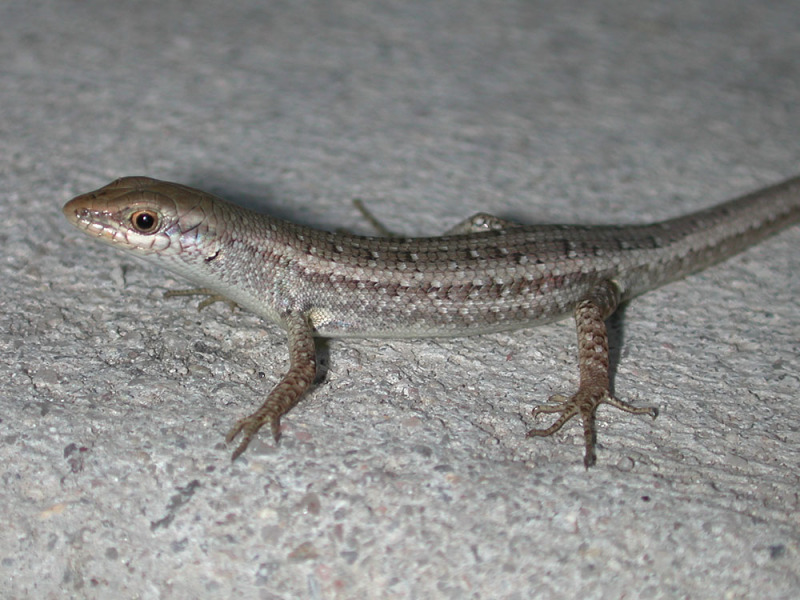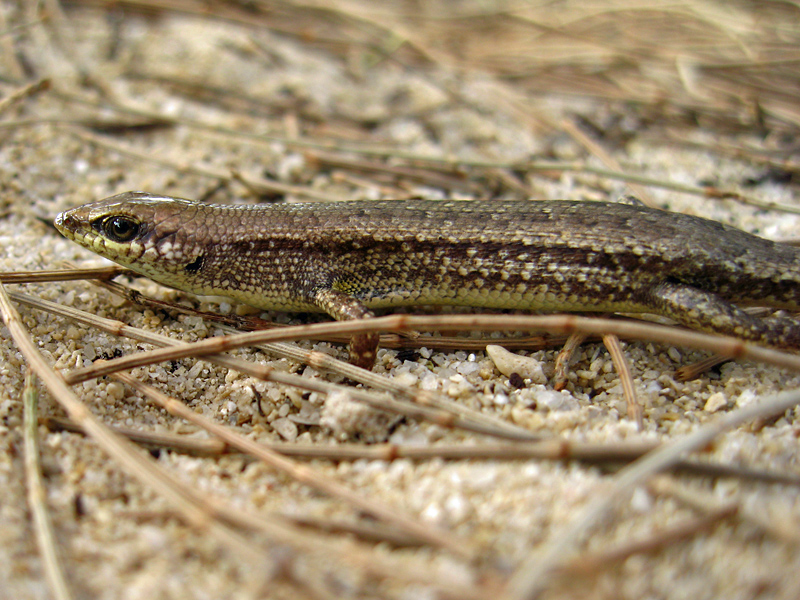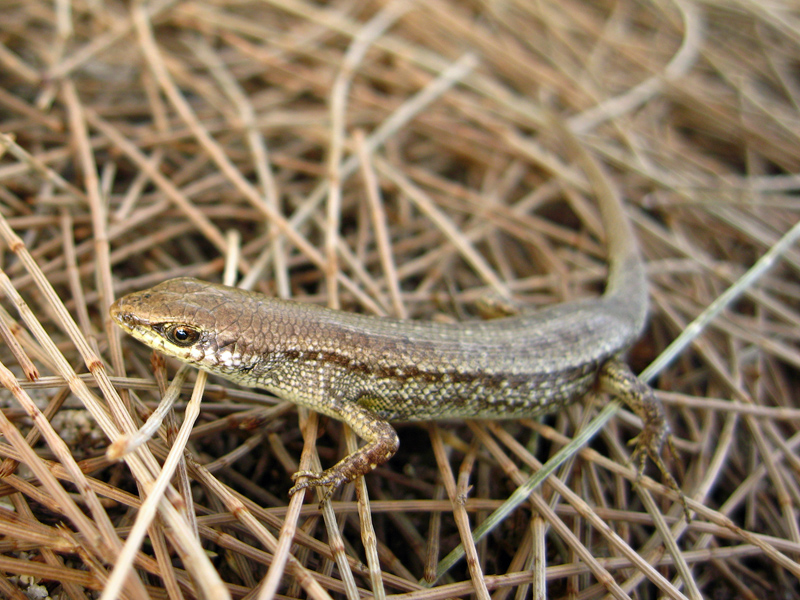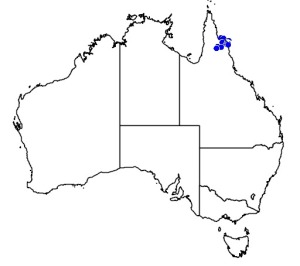�
�
�
���
Carlia dogare
Sandy Rainbow-skink
Kingdom
Animalia
Phylum
Chordata
Class
Reptilia
Order
Squamata
Family
Scincidae
Genus
Carlia
Species
Carlia dogare
Status
unspecified
Colours
Distinguishing features
As with other species of Carlia, there are four fingers and five toes. Females, juveniles, and males in the non-breeding season are brown, with grey vertebral and dorsolateral stripes. The brown areas on the back are patterned with pale spots, each with a dark edge along at least the anterior margin. Breeding males show six orange or reddish-orange stripes along the back and sides. The ear opening is vertically extended, with a black margin, and two small scales (lobules) present along the anterior edge (these are not easily visible in field observations). Two well-developed keels are present on each scale along the back (the dorsal scales), but these cannot be discerned without assistance of a hand-lens or microscope.
Size
- Up to 5 cm (Snout to vent length)
Synonyms
Interesting facts
- Some of the paratypes of Carlia dogare were collected from Lizard Island (Covacevich and Ingram, 1975; Limpus, 1982)
Distribution
Local abundance
- Lizard Island, Queensland, Australia: This species is abundant and common on Lizard Island. It is widely distributed on the island, and is readily seen in most areas around the Research Station and Resort, and alongside the roads, trails, and paths. They were reported by Limpus (1982) to be most abundant in the grasslands and open forest habitats.
Web resources
References
- Covacevich, J. and G. Ingram (1975). Three new species of rainbow skinks of the genus Carlia from northern Queensland. Victoria Naturalist, 92: 19-22.
- Limpus, C.H. (1982). The reptiles of Lizard Island, Herpetofauna, 13(2): 1-6. LIRS catalog number 73.
- Vickers, M. and L. Schwarzkopf (2016). A simple method to predict body temperature of small reptiles from environmental temperature. Ecology and Evolution, 6(10): 3059-3066. LIRS catalog number 2042.
- View all references




